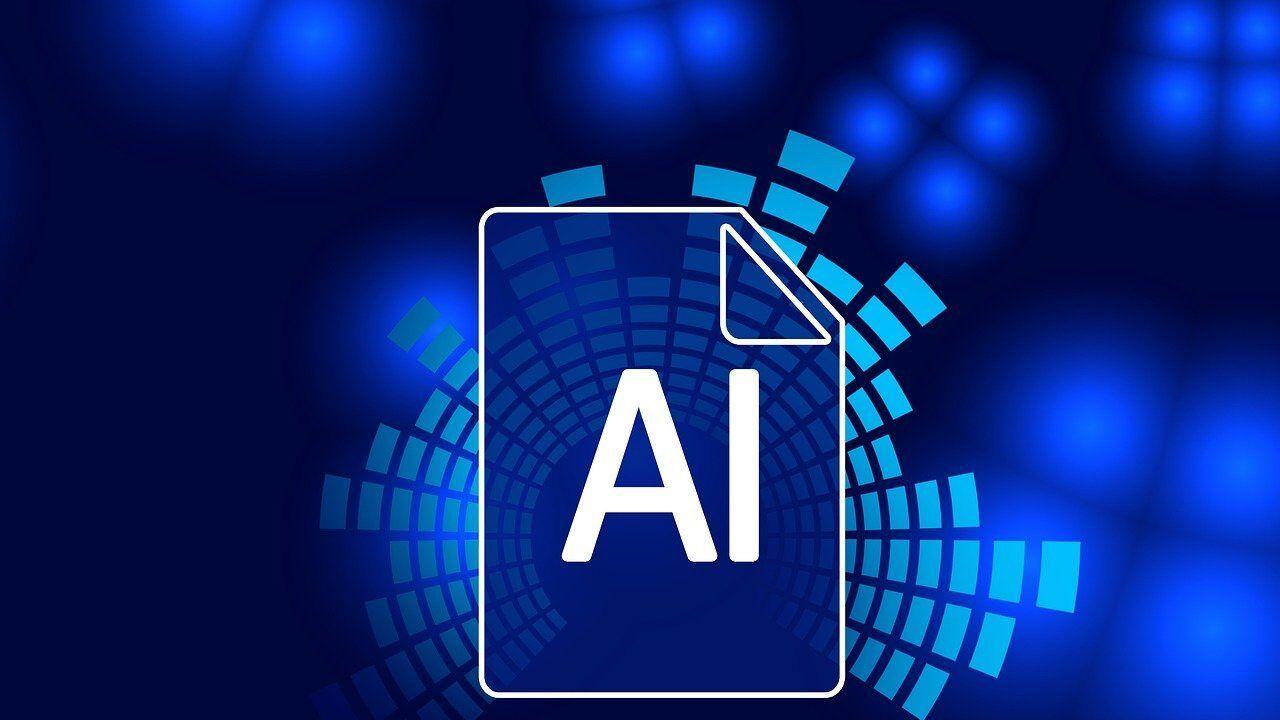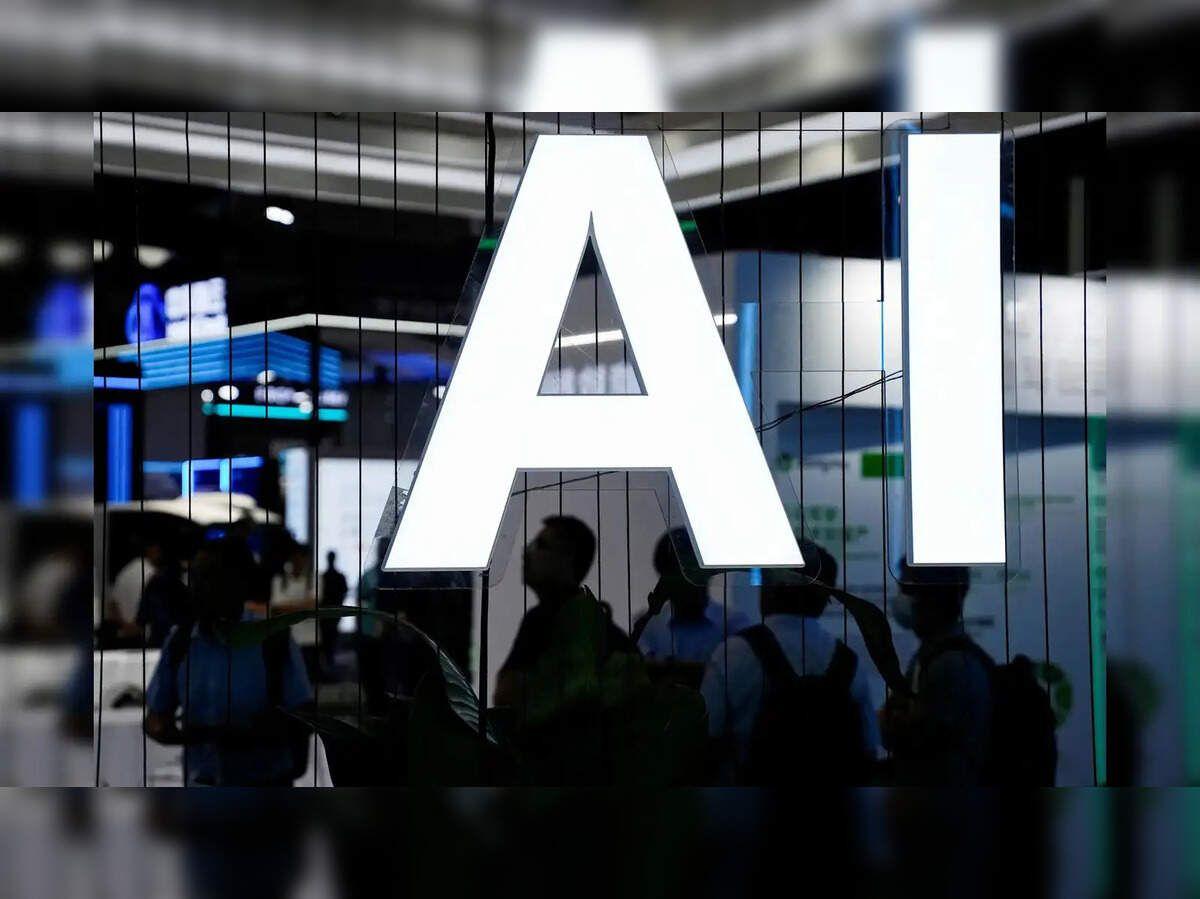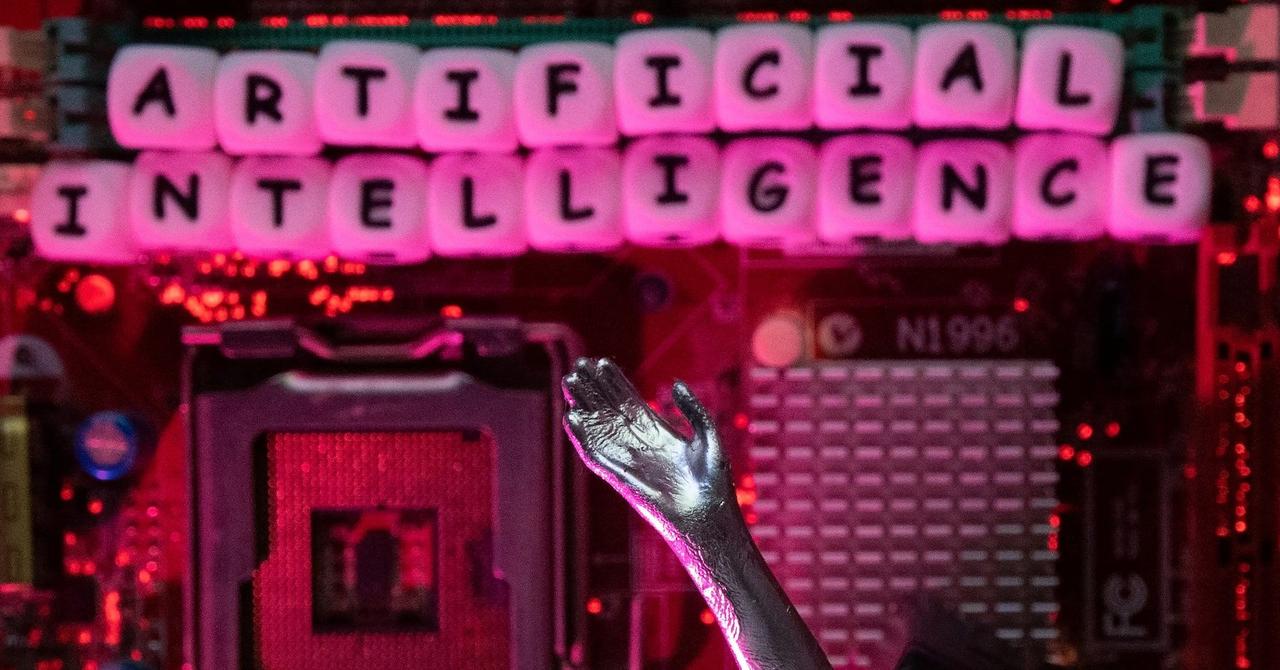Italy Pioneers Comprehensive AI Regulation in the EU
5 Sources
5 Sources
[1]
Italy enacts AI law covering privacy, oversight and child access
ROME, Sept 17 (Reuters) - Italy's parliament on Wednesday approved a new law covering artificial intelligence, making it the first European Union country with comprehensive AI regulations aligned with the EU's landmark AI Act. Prime Minister Giorgia Meloni's government spearheaded the legislation saying it establishes human-centric, transparent and safe AI use as core principles while emphasising innovation, cybersecurity and privacy protections. The law introduces cross-sector rules covering healthcare, work, public administration, justice, education and sport, requiring traceability and human oversight of AI decisions. It also limits AI access for under-14s to parental consent. "This (law) brings innovation back within the perimeter of the public interest, steering AI toward growth, rights and full protection of citizens," said Alessio Butti, the undersecretary for digital transformation. The government designated the Agency for Digital Italy and the National Cybersecurity Agency as national authorities on AI development, while watchdogs including the Bank of Italy and market regulator Consob retain their powers. New criminal provisions target unlawful dissemination of AI-generated content, such as deepfakes, punishable by between one to five years in prison if it causes harm. Illegal AI use will also lead to tougher penalties for offenses including identity theft and fraud. On copyright, works created with AI assistance are protected if they result from intellectual effort, while AI-driven text and data mining is allowed only for non-copyrighted content or scientific research by authorised institutions. The law authorises up to 1 billion euros ($1.18 billion) from a state-backed venture capital fund for equity investments in small-to-medium enterprises and large companies active in AI, cybersecurity, quantum technologies and telecoms. Critics have said the resources being made available are puny compared with international initiatives. In healthcare, AI can assist diagnosis and care under conditions, with doctors retaining final decision-making and patients' maintaining the right to be informed. For workplaces, the law requires employers to inform workers when AI is being deployed. ($1 = 0.8440 euros) Reporting by Crispian Balmer; Editing by Alvise Armellini Our Standards: The Thomson Reuters Trust Principles., opens new tab
[2]
Italy Passes Groundbreaking AI Law Targeting Criminals Who Make Deepfakes
Italy has enacted the European Union's first national law specifically regulating artificial intelligence, setting penalties and safeguards intended to curb misuse while encouraging innovation. The legislation, championed by Prime Minister Giorgia Meloni's government and consistent with the EU's broader AI Act, establishes rules for "human-centric, transparent and safe AI use" with an emphasis on "innovation, cybersecurity and privacy protections." Individuals who distribute harmful AI-generated or manipulated content such as deepfakes can face prison terms of one to five years. Penalties increase when the technology is used for crimes, including fraud or identity theft. The measure also requires clear disclosure and human oversight for AI systems operating in workplaces and sectors like healthcare, education, justice and sports. Children under 14 will need parental consent to access AI services under the act. On intellectual property, AI-assisted works will receive protection only if they reflect genuine human creativity, similar to the U.S. Copyright Office. Text and data mining with AI is limited to non-copyrighted material or to scientific research carried out by approved institutions. Alessio Butti, undersecretary for digital transformation, says the law "brings innovation back within the perimeter of the public interest, steering AI toward growth, rights and full protection of citizens." The Guardian notes that enforcement will be handled by the Agency for Digital Italy and the National Cybersecurity Agency. Parliament approved the bill after a year of debate. "There can and must be an Italian way when it comes to artificial intelligence, an Italian way to develop artificial intelligence and an Italian way to govern artificial intelligence," Meloni remarked about the technology last year. She called it "the greatest revolution of our time," but stressed it must develop "within a framework of ethical rules that focus on people and their rights and needs." The law also commits up to €1 billion (approximately $1.2 billion) from a state-backed venture fund to support firms in AI, cybersecurity and telecommunications, a modest amount compared with U.S. and Chinese investments. In June, Denmark gave people copyright over their own faces and voices to fight the rise of AI-generated deepfakes in a bid to strengthen protections against digital impersonation.
[3]
Italy first in EU to pass comprehensive law regulating AI
Legislation limits child access and imposes prison terms for damaging use of artificial intelligence Italy has become the first country in the EU to approve a comprehensive law regulating the use of artificial intelligence, including imposing prison terms on those who use the technology to cause harm, such as generating deepfakes, and limiting child access. Giorgia Meloni's rightwing government said the legislation, which aligns with the EU's landmark AI Act, is a decisive move in influencing how AI is used across Italy. The aim is to promote "human-centric, transparent and safe AI use" while emphasising "innovation, cybersecurity and privacy protections". The bill introduces prison sentences of between one and five years for the illegal spreading of AI-generated or manipulated content if it causes harm. There will also be harsher penalties for using the technology to commit crimes, including fraud and identity theft, and stricter transparency and human oversight rules governing how the technology is used in workplaces as well as in a range of sectors such as healthcare, education, justice and sport. In addition, children under the age of 14 will need parental consent to access AI. When it comes to copyright, the law stipulates that works created with AI assistance are protected if they originate from genuine intellectual effort, while AI-driven text and data mining will only be permitted for non-copyrighted content or scientific research by authorised institutions. Alessio Butti, undersecretary for digital transformation, said the law "brings innovation back within the perimeter of the public interest, steering AI toward growth, rights and full protection of citizens". The government has appointed the Agency for Digital Italy and the National Cybersecurity Agency to enforce the legislation, which received its final approval in the parliament after a year of debate. Addressing the theme of AI in March last year, Meloni said: "There can and must be an Italian way when it comes to artificial intelligence, an Italian way to develop artificial intelligence and an Italian way to govern artificial intelligence." She considered the technology to be "the greatest revolution of our time", but emphasised that it could only achieve its full potential "if it is developed within a framework of ethical rules that focus on people and their rights and needs". The law authorises up to €1bn from a state-backed venture capital fund to support companies active in AI, cybersecurity and telecommunications, although critics argue the sum is small compared with investments being made by the US and China.
[4]
Italy enacts AI law covering privacy, oversight and child access - The Economic Times
Italy's parliament on Wednesday approved a new law covering artificial intelligence, making it the first European Union country with comprehensive AI regulations aligned with the EU's landmark AI Act. Prime Minister Giorgia Meloni's government spearheaded the legislation saying it establishes human-centric, transparent and safe AI use as core principles while emphasising innovation, cybersecurity and privacy protections. The law introduces cross-sector rules covering healthcare, work, public administration, justice, education and sport, requiring traceability and human oversight of AI decisions. It also limits AI access for under-14s to parental consent. "This (law) brings innovation back within the perimeter of the public interest, steering AI toward growth, rights and full protection of citizens," said Alessio Butti, the undersecretary for digital transformation. The government designated the Agency for Digital Italy and the National Cybersecurity Agency as national authorities on AI development, while watchdogs including the Bank of Italy and market regulator Consob retain their powers. New criminal provisions target unlawful dissemination of AI-generated content, such as deepfakes, punishable by between one to five years in prison if it causes harm. Illegal AI use will also lead to tougher penalties for offenses including identity theft and fraud. On copyright, works created with AI assistance are protected if they result from intellectual effort, while AI-driven text and data mining is allowed only for non-copyrighted content or scientific research by authorised institutions. The law authorises up to 1 billion euros ($1.18 billion) from a state-backed venture capital fund for equity investments in small-to-medium enterprises and large companies active in AI, cybersecurity, quantum technologies and telecoms. Critics have said the resources being made available are puny compared with international initiatives. In healthcare, AI can assist diagnosis and care under conditions, with doctors retaining final decision-making and patients' maintaining the right to be informed. For workplaces, the law requires employers to inform workers when AI is being deployed.
[5]
Italy Imposes New AI Regulations, Mirrors EU Framework
Italy has become the first European Union (EU) member state to enact a national law regulating artificial intelligence, bringing its domestic framework into close alignment with the EU's Artificial Intelligence (AI) Act, according to a report by Reuters. The legislation establishes human-centric, transparent, and safe use of AI as its guiding principles, while also highlighting the importance of innovation, privacy, and cybersecurity. The scope of the law is broad. It extends across healthcare, workplaces, education, justice, public administration, and even sport, and in each of these domains, it requires AI systems to remain traceable and subject to human oversight. The law introduces a wide set of requirements. Children under the age of 14, for instance, cannot access AI services without parental consent. Moreover, all AI decisions must remain under human supervision, and their processes must be fully traceable. Italy has also defined who will hold regulatory authority: the Agency for Digital Italy and the National Cybersecurity Agency will take the lead, while existing bodies such as the Bank of Italy and Consob will continue to exercise power within their own sectors. Additionally, the legislation imposes new criminal penalties. Courts can now sentence people to one to five years in prison for unlawfully distributing AI-generated content, particularly harmful deepfakes. Authorities will also impose tougher punishments for crimes such as fraud and identity theft when offenders use AI to carry them out. Lawmakers have extended copyright protections to works created with the help of AI, provided they reflect intellectual effort. They have also limited text and data mining, allowing it only on non-copyrighted material or for scientific research conducted by authorised institutions. In healthcare, the law makes doctors responsible for final decisions even when AI assists with diagnosis and treatment. It also requires doctors to inform patients whenever AI plays a role in their care. Employers now face new obligations as well, since they must disclose whenever they deploy AI systems in the workplace. The government backs these rules with financial support. It has committed up to €1 billion from a state-backed venture capital fund to invest in companies working on AI, cybersecurity, quantum technologies, and telecoms. Critics argue that this sum falls short compared with the resources other countries have mobilised. Italy's law does not stand alone but is part of a larger European framework. It follows the EU's Artificial Intelligence Act, which was passed in March 2024 and regulates AI systems based on risk levels. The EU law bans certain systems outright, including discriminatory social scoring and real-time biometric identification outside narrowly defined contexts. High-risk systems, such as those used in law enforcement, migration, or healthcare, are subject to strict requirements. General-purpose AI models, including generative AI tools, must disclose information about their training datasets and comply with EU copyright rules. Italy's law mirrors these obligations but adds local features, most notably the parental consent requirement for children and the creation of a dedicated domestic fund to encourage AI development. This legislation also reflects a pattern of assertive enforcement that Italy has established over the past two years. In 2023, it became the first country to suspend ChatGPT for non-compliance with the General Data Protection Regulation (GDPR), forcing OpenAI to strengthen its disclosures and introduce age-gating before services were restored. Later that year, in November 2023, the Italian Data Protection Authority launched a fact-finding investigation into how online personal data was being scraped for AI training, and it invited submissions from academics, consumer groups, and other stakeholders. More recently, in January 2025, Italy once again took a pioneering step by banning the Chinese AI model DeepSeek R1. The decision was based on concerns about privacy, transparency, and significant security flaws, further highlighting the country's willingness to confront AI companies head-on. Italy is now positioning itself as a test case for how national governments within the EU will interpret and implement the bloc's AI framework. Its new law demonstrates the convergence of AI regulation with data protection enforcement, weaving together oversight obligations, sectoral rules, and even criminal liability. Moreover, the legislation may prompt other EU countries to accelerate their own domestic frameworks, creating a more fragmented but proactive regulatory environment. At the same time, the law signals that national authorities will continue to scrutinise global AI models. Italy's actions against ChatGPT and DeepSeek show that enforcement will remain central to Europe's approach to AI governance. With this law, those interventions now rest on a stronger legal foundation, setting a precedent for the rest of the EU.
Share
Share
Copy Link
Italy becomes the first EU country to enact a national law regulating artificial intelligence, aligning with the EU's AI Act. The legislation covers privacy, oversight, child access, and introduces criminal penalties for AI misuse.
Italy's Groundbreaking AI Legislation
Italy has made history by becoming the first European Union country to enact a comprehensive national law regulating artificial intelligence, aligning with the EU's landmark AI Act
1
. The legislation, spearheaded by Prime Minister Giorgia Meloni's government, establishes human-centric, transparent, and safe AI use as core principles while emphasizing innovation, cybersecurity, and privacy protections2
.
Source: MediaNama
Key Provisions and Regulations
The new law introduces cross-sector rules covering various domains, including healthcare, work, public administration, justice, education, and sport. It mandates traceability and human oversight of AI decisions, ensuring that AI systems remain under human supervision
1
.
Source: Reuters
One of the notable aspects of the legislation is the limitation on AI access for children under 14, requiring parental consent
3
. This measure aims to protect young users from potential risks associated with AI technologies.Criminal Provisions and Penalties
The law introduces new criminal provisions targeting the unlawful dissemination of AI-generated content, such as deepfakes. Offenders can face prison terms of one to five years if their actions cause harm
2
. Additionally, the legislation imposes harsher penalties for using AI in crimes like identity theft and fraud4
.Copyright and Intellectual Property
On the copyright front, the law stipulates that works created with AI assistance are protected if they result from genuine intellectual effort. AI-driven text and data mining is allowed only for non-copyrighted content or scientific research conducted by authorized institutions
3
.Regulatory Authorities and Enforcement
The Italian government has designated the Agency for Digital Italy and the National Cybersecurity Agency as the primary national authorities on AI development. Existing watchdogs, including the Bank of Italy and market regulator Consob, will retain their powers within their respective sectors
1
.Related Stories
Financial Support and Criticism
To support the implementation of the law, the Italian government has authorized up to €1 billion from a state-backed venture capital fund for equity investments in companies active in AI, cybersecurity, quantum technologies, and telecoms . However, critics argue that this sum is modest compared to international initiatives and investments made by countries like the United States and China
5
.Implications for Various Sectors
In healthcare, the law allows AI to assist in diagnosis and care under specific conditions, with doctors retaining final decision-making authority and patients maintaining the right to be informed. For workplaces, employers are required to disclose when AI is being deployed
4
.Italy's Leadership in AI Regulation
This legislation positions Italy as a pioneer in AI regulation within the EU, potentially prompting other member states to accelerate their own domestic frameworks. It also demonstrates Italy's proactive approach to AI governance, following its previous actions against ChatGPT and the Chinese AI model DeepSeek R1
5
.
Source: ET
As Alessio Butti, the undersecretary for digital transformation, stated, this law "brings innovation back within the perimeter of the public interest, steering AI toward growth, rights and full protection of citizens"
1
. The implementation and impact of Italy's AI law will likely be closely watched by other EU countries and global tech industry players in the coming months.References
Summarized by
Navi
[3]
Related Stories
Italy's Data Protection Authority Blocks Chinese AI Chatbot DeepSeek Over Privacy Concerns
30 Jan 2025•Policy and Regulation

OpenAI Fined €15 Million by Italy for ChatGPT Data Privacy Violations
20 Dec 2024•Policy and Regulation

Spain Introduces Strict AI Regulation with Heavy Fines for Unlabeled AI-Generated Content
12 Mar 2025•Policy and Regulation

Recent Highlights
1
Google Gemini 3.1 Pro doubles reasoning score, beats rivals in key AI benchmarks
Technology

2
Meta strikes up to $100 billion AI chips deal with AMD, could acquire 10% stake in chipmaker
Technology

3
Pentagon threatens Anthropic with supply chain risk label over AI safeguards for military use
Policy and Regulation





